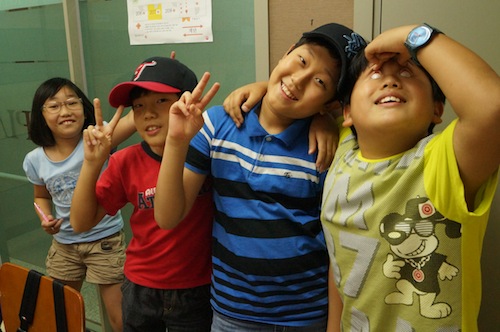Tag: ESL activities
Tips for Teaching One-on-One Lessons
Teaching private lessons is a great way to make some supplemental income, and it’s a lot of fun – but if you’ve mostly taught in a classroom, you’ll find that there’s a big difference when it comes to keeping a one-on-one lesson interesting and engaging – not to mention managing your time and payment.
How to Teach ESL to Total Beginners
As an ESL teacher, there is a good chance that you’ll find yourself teaching a class of total beginners. This doesn’t just mean that they will struggle with basic sentence patterns or pronunciation – it means that when you step into the classroom and say “Hello, what’s your name?” you’ll be greeted by blank stares and the sound of crickets chirping.
ESL Teaching Methods: How to Make Writing Fun
Do your students greet the words “Take out your journals” with a collective, resounding groan? For most students, expressing their ideas on paper is a challenge even in their native language, let alone doing so with creativity, style, and decent grammar. Throw a foreign language into the mix, and writing can seem utterly daunting.
5 Things Every New ESL Teacher Should Know
The learning curve for a new ESL teacher can be pretty steep. But don’t get discouraged. Here are five things that every new ESL teacher should know. Master these basic concepts and ideas, and you’ll be well on your way to teaching like a pro and feeling totally comfortable every time you step into the classroom.
Ten Essential ESL Filler Activities
Every teacher has, at some point in their career, experienced that deer-in-the-headlights moment when you realize that you’re completely out of lesson material with twenty minutes left in class. For those of us who aren’t improvisational geniuses, having a solid repertoire of “filler” activities is crucial for those moments.
ESL Classroom Management Strategies
Because classroom management is such a complicated balancing act between being fun and nice, and being strict enough to give kids the structure they need, many teachers find that it’s one of the hardest aspects of teaching to master.
ESL Teaching Methods: Teaching Grammar Creatively
Grammar probably ranked pretty high on your list of least favorite subjects as a student. As a teacher, it can seem just as boring. When it comes to teaching ESL, though, you’re going to be spending a lot of time getting very familiar with the minute points of grammar, and then figuring out how to communicate those to your students.
Five Mistakes To Avoid On Your First Day Of Class
Whether you are a brand new teacher or have been in front of the classroom for years, the first day of a new class is crucial. It’s important to put in some thought and planning to start a new class off on the right foot. Avoid these five mistakes not to make on your first day of class and your school year will be off to a great start.







